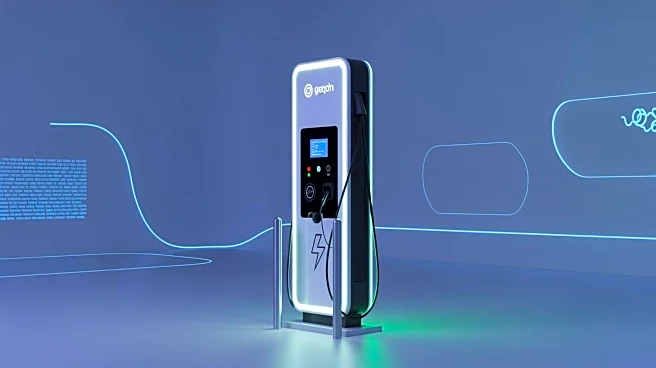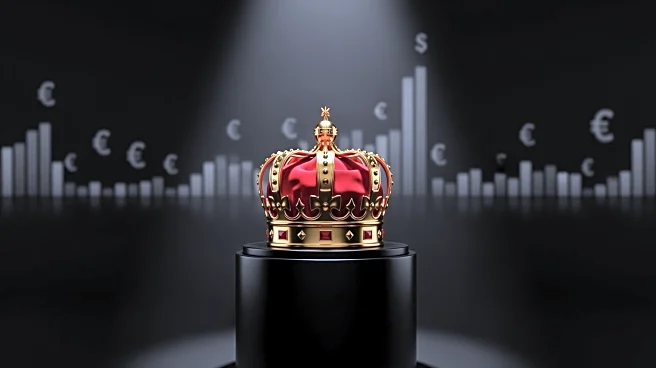What's Happening?
The federal electric vehicle tax credit, which provided up to $7,500 for new EV purchases and $4,000 for used EVs, expired on September 30, 2025. This expiration was part of the One Big Beautiful Bill Act, signed by President Trump on July 3, 2025, which eliminated
clean energy incentives in both commercial and domestic sectors. The termination of the tax credit has already begun affecting residents in the Bay Area, leading to predicted delays or cancellations of proposed clean energy projects. Despite the rollback, electric vehicles remain a popular choice for reducing fossil fuel emissions on an individual level. The California Clean Air Vehicle Decal program also ended on October 1, 2025, removing the ability for EVs to drive for free in High-Occupancy Vehicle lanes without meeting occupancy requirements.
Why It's Important?
The expiration of the federal EV tax credit marks a significant shift in U.S. environmental policy, potentially slowing the growth of the electric vehicle market. The rollback of clean energy incentives could hinder the progress of renewable energy projects, impacting efforts to reduce carbon emissions. While some fear the end of the tax credit could harm the EV industry, companies like Tesla and Rivian are expected to continue thriving due to their established market presence. The Bay Area, known for its high EV adoption rates, may face challenges in maintaining its leadership in the national shift to electric vehicles. The removal of incentives could also affect consumer decisions, altering the cost-benefit analysis for prospective EV buyers.
What's Next?
With the federal tax credit no longer available, the EV industry may rely more heavily on company-specific incentives and the introduction of more affordable models to sustain sales. Companies like General Motors and Ford are offering special discounts for educators, while updated versions of popular EV models are expected to be released in late 2025 and 2026. The Bay Area's extensive charging infrastructure may continue to support EV adoption despite the loss of incentives. Long-term, the industry may need to adapt to changing consumer preferences and economic conditions to maintain growth.
Beyond the Headlines
The rollback of clean energy incentives raises ethical and environmental concerns, as it may slow efforts to combat climate change. The decision reflects broader policy shifts under the Trump administration, prioritizing fossil fuel industries over renewable energy. This could have long-term implications for U.S. environmental policy and global climate commitments. The end of the tax credit may also influence cultural attitudes towards sustainability, as consumers weigh the environmental benefits of EVs against financial considerations.
















